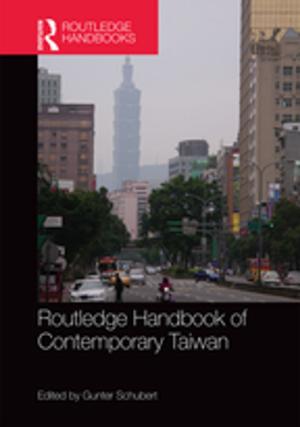The Seventeenth-Century Customs Service Surveyed
William Culliford's Investigation of the Western Ports, 1682-84
Nonfiction, History, Modern, 17th Century| Author: | William B. Stephens | ISBN: | 9781317016205 |
| Publisher: | Taylor and Francis | Publication: | March 3, 2016 |
| Imprint: | Routledge | Language: | English |
| Author: | William B. Stephens |
| ISBN: | 9781317016205 |
| Publisher: | Taylor and Francis |
| Publication: | March 3, 2016 |
| Imprint: | Routledge |
| Language: | English |
In January 1682, William Culliford, a loyal and experienced officer in the King's customs service, began an extraordinary journey under Treasury orders to investigate the integrity and efficiency of the customs establishments of southwest England and south Wales as part of a drive to maximize the Crown's income from customs duties (on which it relied for much of its revenue). Starting at Bristol, Culliford eventually completed this daunting task in Cornwall over two years later in the spring of 1684. His report on each of the ports he inspected (the primary source for this book) revealed widespread smuggling and fraud in the context of a customs service both lacking in efficiency and riddled with corruption. The book documents the varied frauds and wide-ranging abuses uncovered and their facilitation by customs officers only too ready to collude with smugglers, dishonest merchants and seamen and to accept bribes to ignore tax evasion. It describes, too, Culliford's assessment of the administrative practices of each port inspected and his judgment on the levels of probity and efficiency of individual officers, detailing his recommendations for procedural improvements and the treatment of the corrupt and incompetent and, incidentally, of those suspected of political and religious dissent. Additionally, the book presents a body of statistical data on the customs revenue actually collected at individual ports in the 1670s and 1680s and surveys the extent and nature of the maritime trade of the ports Culliford examined. It thus not only throws light on the history of the customs service, but provides a rare insight into the interactions of economic, social and political issues in the later seventeenth century, and makes a valuable contribution to the particular histories of the ports and maritime districts visited by this energetic and tenacious investigator.
In January 1682, William Culliford, a loyal and experienced officer in the King's customs service, began an extraordinary journey under Treasury orders to investigate the integrity and efficiency of the customs establishments of southwest England and south Wales as part of a drive to maximize the Crown's income from customs duties (on which it relied for much of its revenue). Starting at Bristol, Culliford eventually completed this daunting task in Cornwall over two years later in the spring of 1684. His report on each of the ports he inspected (the primary source for this book) revealed widespread smuggling and fraud in the context of a customs service both lacking in efficiency and riddled with corruption. The book documents the varied frauds and wide-ranging abuses uncovered and their facilitation by customs officers only too ready to collude with smugglers, dishonest merchants and seamen and to accept bribes to ignore tax evasion. It describes, too, Culliford's assessment of the administrative practices of each port inspected and his judgment on the levels of probity and efficiency of individual officers, detailing his recommendations for procedural improvements and the treatment of the corrupt and incompetent and, incidentally, of those suspected of political and religious dissent. Additionally, the book presents a body of statistical data on the customs revenue actually collected at individual ports in the 1670s and 1680s and surveys the extent and nature of the maritime trade of the ports Culliford examined. It thus not only throws light on the history of the customs service, but provides a rare insight into the interactions of economic, social and political issues in the later seventeenth century, and makes a valuable contribution to the particular histories of the ports and maritime districts visited by this energetic and tenacious investigator.















